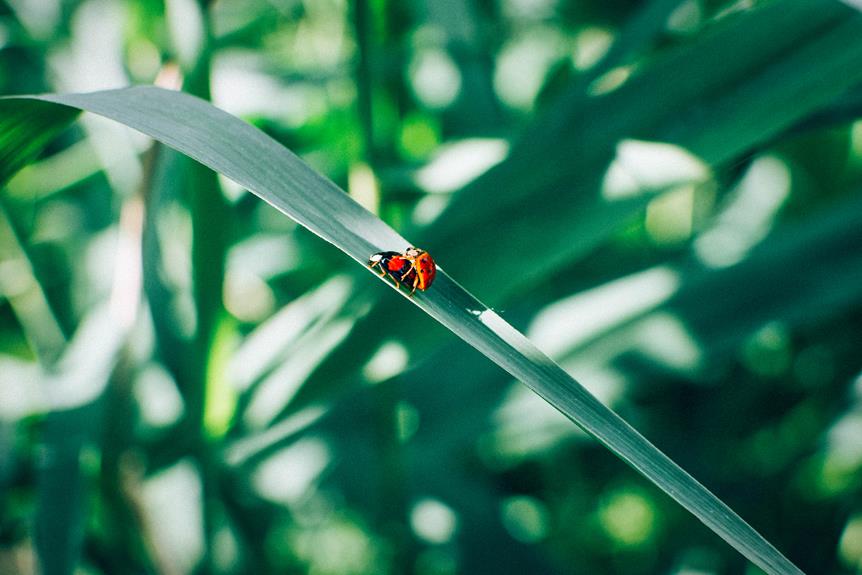
In Spain, we are surrounded by bustling colonies of ants, each with their own unique roles and responsibilities. These tiny creatures, with their intricate network of tunnels and chambers, play a vital role in the diverse ecosystems that span the country. From foraging for food to shaping the landscape, ants leave an indelible mark on the agricultural and urban areas of Spain. Join us as we delve into the fascinating world of ants and uncover their hidden secrets in Spain.
Key Takeaways
Table of Contents
- Spain is home to over 300 species of ants, which vary in their ecological roles and habitats.
- Ants in Spain have ecological importance, contributing to seed dispersal, soil aeration, nutrient cycling, predation, and pollination.
- Ants can have both positive and negative economic impacts in Spain, damaging crops and structures but also serving as biological control agents and sources of certain products.
- Ants interact with humans in various ways, including as pests, in traditional practices, for scientific research, and as educational pets.
The Diversity of Ant Species in Spain
We're amazed by the diversity of ant species in Spain. It's incredible to think that in such a relatively small country, there are over 300 different species of ants. From the tiny Pharaoh ants to the larger and more aggressive Argentine ants, each species has its own unique characteristics and behavior.
One of the most fascinating aspects of the ant species in Spain is their ability to adapt to different environments. Some ants prefer dry and arid regions, while others thrive in moist and humid areas. This adaptability allows them to colonize a wide range of habitats, from urban areas to rural landscapes.
Another interesting fact about ants in Spain is their role in the ecosystem. As scavengers and decomposers, they play a crucial role in maintaining the balance of the ecosystem. They help break down organic matter and recycle nutrients, which in turn benefits other organisms in the food chain.
Ants are also known for their highly organized social structure. They live in colonies, with each individual having a specific role to play. There are worker ants responsible for foraging and building, soldier ants that defend the colony, and even reproductive ants that ensure the continuation of the species.
Ant Colonies: Structure and Organization
After discussing the diversity of ant species in Spain, let's now explore the fascinating structure and organization of ant colonies. Ant colonies are truly remarkable communities, where individual ants work together in perfect harmony to ensure the survival and success of the entire colony. Here are some key aspects of the structure and organization of ant colonies:
- Division of labor: Ant colonies have a clear division of labor, with different ants taking on specific roles and responsibilities. There are worker ants that gather food, nurse ants that care for the brood, and soldier ants that protect the colony.
- Communication: Ants communicate with each other through a variety of methods, including chemical signals called pheromones. These signals help ants coordinate their activities and navigate their environment.
- Nest architecture: Ant colonies build intricate nest structures, which vary depending on the species. Some ants create underground tunnels and chambers, while others construct elaborate mound nests above ground.
- Social hierarchy: Ant colonies have a social hierarchy, with a queen at the top and various castes of workers and soldiers below her. The queen's main role is to reproduce and lay eggs, while the workers and soldiers support and protect the colony.
The structure and organization of ant colonies demonstrate the power of cooperation and teamwork in the insect world. By working together, ants are able to thrive and adapt to their surroundings, making them one of the most successful and resilient creatures on the planet.
Ants' Ecological Role in Spanish Ecosystems
Let's explore the ecological role of ants in Spanish ecosystems. Ants are not just tiny insects that we often ignore or try to get rid of. In fact, they play a significant role in maintaining the balance of Spanish ecosystems. One of the most important roles that ants play is seed dispersal. As they scurry around in search of food, ants unintentionally pick up seeds and carry them to new locations. This helps in the regeneration and colonization of plant species in different areas, contributing to the biodiversity of Spanish ecosystems. Additionally, ants are excellent soil engineers. They dig tunnels and create intricate underground networks that help with aeration and nutrient cycling in the soil. These tunnels also create pathways for water to infiltrate into the ground, reducing the risk of soil erosion. Furthermore, ants are important predators, feeding on a variety of insects and arthropods. By controlling the population of these organisms, ants help maintain the balance of Spanish ecosystems and prevent outbreaks of pests. So, the next time you see ants in your garden or in the wild, remember that they are playing a vital role in the health and sustainability of Spanish ecosystems.
Ant Foraging Behavior and Feeding Habits in Spain
During our study on ant foraging behavior and feeding habits in Spain, we observed that ants primarily search for food during the daytime. This finding aligns with previous research on ant behavior, as many ant species are known to be diurnal creatures. Our observations were consistent across various ant species and habitats, suggesting that daytime foraging is a common characteristic among ants in Spain.
In addition to their daytime foraging habits, we also noticed that ants exhibit a high level of organization and cooperation during food collection. They form well-defined foraging trails, with individual ants following a specific path in a single-file line. This efficient system allows them to efficiently locate and transport food resources back to their nests.
Furthermore, we observed that ants are highly adaptable when it comes to their food preferences. While they primarily search for sugary substances such as nectar and honeydew, they are also opportunistic scavengers that can consume a wide variety of food sources. This flexibility in their feeding habits enables ants to survive and thrive in diverse environments.
Overall, our study provides valuable insights into ant foraging behavior and feeding habits in Spain. By understanding these patterns, we can gain a better understanding of ant ecology and contribute to the broader field of insect ecology.
The Impact of Ants on Agriculture and Urban Areas in Spain
We have observed that ants play a significant role in both agriculture and urban areas in Spain, as their foraging behavior can impact crop productivity and the overall cleanliness of urban environments. In agriculture, ants are known to be important pollinators and seed dispersers, contributing to the reproduction and spread of various plant species. They also help control pest populations by preying on insects that harm crops. However, ants can also have negative effects on agriculture, as some species feed on seeds and plant tissues, causing damage to crops. This highlights the complex relationship between ants and agriculture, where their presence can have both positive and negative consequences.
In urban areas, ants are considered beneficial as they help reduce waste by consuming organic matter, such as food scraps and dead insects. They also act as natural pest controllers by feeding on small insects and reducing their populations. However, the presence of ants in urban environments can also be seen as a nuisance, especially when they invade homes and buildings in search of food and nesting sites. In these cases, control measures may be necessary to manage ant populations and prevent damage to infrastructure.
Overall, the impact of ants on agriculture and urban areas in Spain is multifaceted, with both positive and negative aspects. Understanding their behavior and the ecological role they play is essential for developing sustainable management strategies that balance their benefits and potential drawbacks.
Frequently Asked Questions
How Do Ants Communicate and Coordinate Their Activities Within a Colony?
We ants communicate and coordinate our activities within a colony through pheromones, touch, and sound. By releasing chemical signals and touching each other, we can convey information about food sources, danger, and even recruit others to help with tasks.
What Is the Reproductive Behavior of Ants in Spain?
When it comes to the reproductive behavior of ants in Spain, we've discovered that they have a fascinating system of mating and establishing new colonies, ensuring the survival and expansion of their species.
Do Ants in Spain Have Any Natural Predators?
Yes, ants in Spain have natural predators. They face threats from various animals such as birds, reptiles, amphibians, and even other insects. These predators play a crucial role in maintaining the balance of the ecosystem.
How Do Ants Contribute to Nutrient Cycling in Spanish Ecosystems?
How ants contribute to nutrient cycling in Spanish ecosystems is fascinating. They play a crucial role in breaking down organic matter and distributing nutrients. It's amazing how these tiny creatures have such a big impact.
Are There Any Invasive Ant Species That Pose a Threat to Native Ants in Spain?
Yes, there are invasive ant species in Spain that pose a threat to native ants. They compete for resources, disrupt ecosystems, and can even drive native species to extinction. It's a concerning issue.




Leave a Reply
You must be logged in to post a comment.